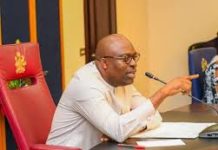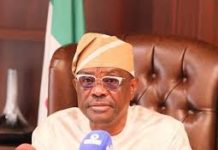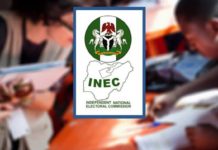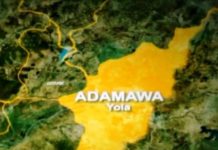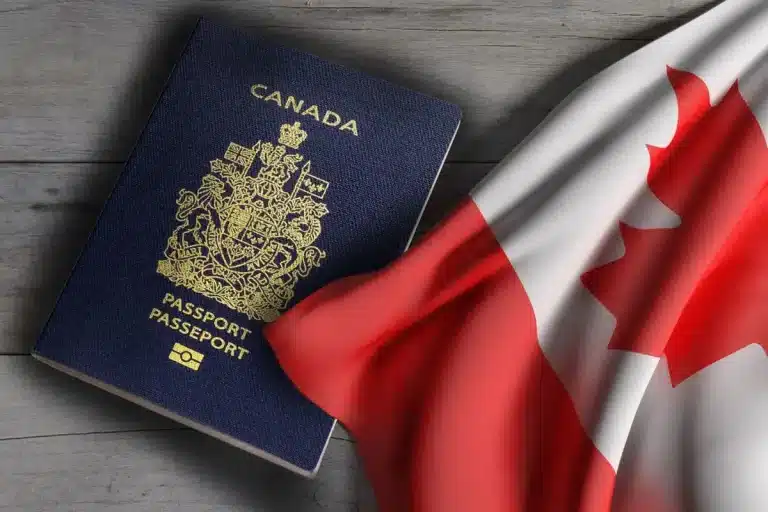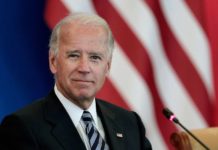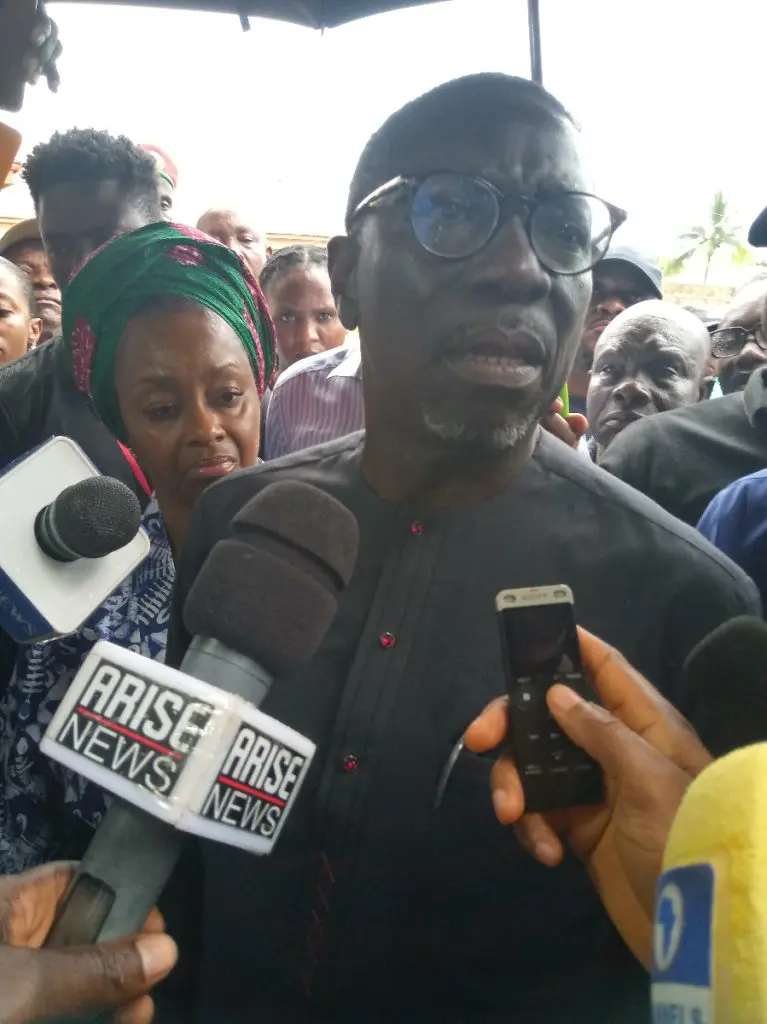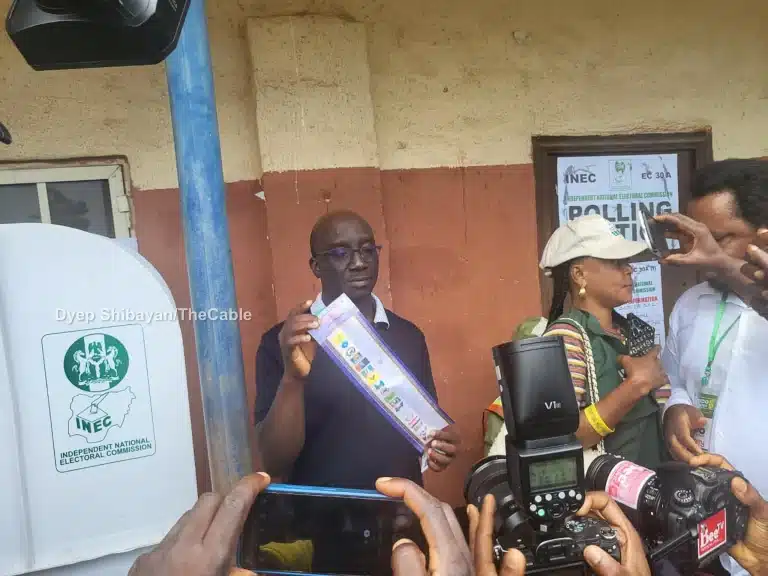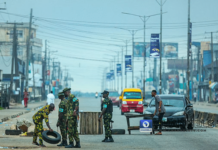The Honourable Minister Of Humanitarian Affairs Disaster Management And Social Development Sadiya Umar Farouq has said that from N-Power Batch A & B 109,823 beneficiaries have gone on to set up businesses in their communities.
The Minister made this statistical disclosure today Tuesday 22nd Of March, 2022 at the First Humanitarian Open House And the Launch Of the IDP Policy held at Sheraton Hotel Abuja while giving a keynote address.
In her words, “From Batch A & B 109,823 beneficiaries have gone on to set up businesses in their communities, underlining and highlighting the impact and importance of the N-Power programme.
Under batch C stream 1 there are 510,000 currently enrolled and benefitting from the programme while an additional 490,000 will be enrolled following Presidential approval to increase the number to one million. What this means for the economy is that one million young people will in the next year be equipped with requisite skills in different fields through hands-on and on the job exposure and experience so they can be equipped to start their own businesses or secure jobs based on the experience they will gain on the programme.
This will also translate into the emergence of micro, small and medium enterprises that will contribute to the economy and provide means of livelihoods for the owners and others they will employ while contributing to a qualified and experienced workforce that can drive corporate success and economic growth. The Ministry recently flagged off the training of exited N Power beneficiaries known as NEXIT a programme where exited beneficiaries are trained and CBN provides loans to enable them to start businesses so they can be employers of labour.
In a bid to bridge the gap between the rural communities and the financial services required, the Ministry came up with the Mobile Money Agents programme.
The programme is a nationwide effort under N-Power which trained and equipped 1,850 (50 agents per state) agents with tools such as Point of Sales (POS) Machines Fingerprint scanner Plastic chair Plastic table Outdoor umbrella Hardcover ledger.
The National Home-Grown School Feeding Programme. The National Home-Grown School Feeding Programme is ongoing in 35 states and the FCT.
It was introduced in 2016 to provide one free nutritious meal to children in primary 1-3 across public schools in the Nation. Presently, almost 10 million children in 54, 619 schools are benefiting from this creative programme with 120,000 cooks, about 100,000 smallholder farmers, and numerous aggregators are also benefitting the programme nationwide.
“Humanitarian Open House is being hosted with the theme ‘Coordinating for Durable Humanitarian Solutions; the Journey so far.’
The Theme has been carefully chosen to allow the Ministry to speak on its coordinating efforts, activities, and achievements as well as milestones being attained, results being delivered and more importantly, the impact the Ministry and indeed the government is making in the lives of Nigerians. we have achieved a lot in the area of the provision and coordination of humanitarian interventions in keeping with our mandate.
We have also been able to provide coordination through cooperation and partnerships with relevant government MDA’s, development partners, UN Agencies, and other partners.
This is all in a bid to ensure sustained and expanded social protection programmes, prompt emergency response, and appropriate humanitarian interventions. National Social Investment Programme.
“The National Social Investment Programme is the biggest social protection and poverty eradication programme put in place by any government in Nigeria and one of the biggest in Africa.
It was established by President Buhari in 2016 to address immediate and long-term socio-economic imbalances and inequalities, alleviate poverty and stimulate accelerated economic growth. The NSIP has four main clusters namely; N-Power, National Home-Grown School Feeding Programme (NHGSFP),
The Conditional Cash Transfer (CCT), and the Government Enterprise and Empowerment Programme (GEEP) Each of the programmes are carefully designed to address specific socio-economic challenges and protect Nigerians from poverty, economic shocks, and social vulnerabilities by increasing the income and livelihood of the poor and vulnerable households, reducing youth unemployment, increasing access to education and health services, eradicating malnutrition in school-age children and improving enrollment of School-age Children providing affordable credit for Micro Small and Medium Enterprises (MSMEs).
“In addition to these suites of programmes, the Federal Government in partnership with the World Bank, established the National Social Safety Nets Programmes (NASSP) which established for the first time the National Social Register of the poor and vulnerable households and individuals nationwide.
The programme commenced in the office of His Excellency the Vice President of Nigeria Prof Yemi Osinbajo SAN GCON where it was successfully implemented before it was transferred to the Ministry in 2019 following the creation of the Ministry.
N-POWER, the Ministry successfully exited the 500,000 Batch A and B N-Power beneficiaries in 2020 and received about 6.4 million applications for batch C.”
Dwelling extensively on the achievements of the ministry under her drive, she said, “Recently, we reviewed the cost of feeding each child from N70 to N100 per meal. Conditional Cash Transfer.
This component involves the financing of safety net transfers to targeted Poor and Vulnerable Households (PVHHs) included in the National Social Register (NSR), delivering regular and reliable transfers in a way that is accessible to beneficiaries and with benefit levels that are consistent with project objectives. This provides targeted monthly Base Cash Transfers of NGN 5,000 to the eligible PVHHs mined from the NSR. The transfer is to help improve their consumption levels and to encourage them to develop savings skills.
The overall objective is aimed at reducing poverty, preventing the vulnerable households from becoming poorer and building their ability to be better than what they were before they started benefiting from the programme. The conditional cash transfer serves as a buffer for economic shocks and caters for household consumption needs. Besides disbursement of stipends to beneficiaries, beneficiaries are encouraged and guided to form cooperatives among themselves for the purpose of contributing and saving a portion of their stipends into a collective purse which they could invest in micro-businesses, the proceeds of which members of the cooperative benefit from. They are provided with capacity-building trainings in the areas of Savings and Group Mobilisation (SGM), Life Skills(ls) Micro Business Development Plan (MBDP), Livelihood activities as well as co-orientation and nutrition training for co-responsibility.
Enrolment of beneficiaries into the programme commenced in 2017 and as at April 2018 the programme had enrolled 261,501 beneficiary households into the National Beneficiary Register (NBR) across 19 States. As at 25th November, 2021, 1,928,374 beneficiary households have been enrolled into the NBR nationwide. This is a pointer to the success the programme has achieved in line with the President’s vision of lifting a hundred million Nigerians out of poverty.
“Government Enterprise And Empowerment Programme (GEEP).
The Government Enterprise and Empowerment Programme (GEEP) aims at addressing the challenges of credit and financial inclusion for the over 37 million Nigerians at the base of the economic pyramid who are involved in active commercial activity but have never had the opportunity to access loans.
GEEP has so far provided incremental loans of between N10,000 and N300,000 to about 2.3 million beneficiaries who are traders, artisans, enterprising youth, agricultural workers, and other micro-service providers; under its flagship programs TraderMoni, MarketMoni, and FarmerMoni.
TraderMoni – caters to poor and vulnerable enterprising youths while MarketMoni caters to poor and vulnerable enterprising women both components disburse N 50,000. Poor and rural farmers are captured under FarmerMoni the loan amount is N 300,000. It is increasing financial inclusion by on-boarding beneficiaries into the formal financial system of banking. Registration of interested persons has been completed nationwide and digitization of the data collected is ongoing. We will commence the disbursement of the GEEP 2.0 loan to successful beneficiaries shortly.
Open House, the need to keep stakeholders and partners including the media abreast with the Ministry’s programmes and activities is imperative to allow correct, consistent, and sustained information dissemination of the mandate, vision, policy direction, activities, interventions, and its huge impact to all Nigerians and others”.
Speaking on the benefits of the Humanitarian open house, she said, “the Open House will encourage a nexus of interchange of ideas, enable the media practitioners report from an informed position as well as give stakeholders and partners first-hand information they can share across their various platforms.
Through this programme we hope to provide a more engaging platform for the Ministry to lead the way through connectivity, enable more synergy and cooperation between stakeholders to support and empower more people, create more possibilities, provide access to more solutions, make things happen faster and support the growing ranks of people of concern to access more interventions.
The Humanitarian hub as an integral part of this Open House the Humanitarian Hub has been created as a veritable platform for the Ministry, its Agencies, partners, and stakeholders to engage and connect with visitors, media, and other partners and stakeholders. Beyond the robust information sharing the Humanitarian Hub will offer, it is expected to provide an opportunity for networking and sharing global best practices that will increase partnerships and collaborations and result in more impact and solutions for a humanitarian challenges and social protection in Nigeria.
As part of today’s activities, I am pleased to present the Ministry’s Information Brochure and the National Social Investment Programme SIP Information brochure. The information brochure is a one-stop-shop information book containing all the basic information on the Ministry, its Departments, programmes, and Agencies. Similarly, a pictorial compendium chronicling the activities , programmes, and achievements of the Ministry is presented.
IDP Policy Today, I am equally launching to the world the National Policy on IDP which was approved by the Federal Executive Council (FEC) in September 2021. As you are aware, the process of developing and adoption of the policy commenced in 2001, within this period the initial draft of the policy have been reviewed severally to reflect new realities and emerging trends in humanitarian space in Nigeria.
This policy intends to provide a framework for national responsibility towards prevention and protection of citizens and, in some cases, non-citizens, from incidences of arbitrary and other forms of internal displacement, meet their assistance and protection needs during displacement, and ensure their rehabilitation, return, reintegration and relocation after displacement.
The policy spells out principles guiding humanitarian assistance and implementation of durable solutions in situations of internal displacement in Nigeria and has adopted the human rights-based approach and its principles.
It integrated the provisions of existing international conventions, treaties and protocols on internal displacement, guided by the dictates of international humanitarian and human rights laws. This policy, therefore, draws extensively on the guidance of international and national frameworks on the prevention of internal displacement, as well as those on protection and assistance of internally displaced persons.
The Kampala Convention, the UN Guiding Principles on internal displacement, and the Sphere Minimum Standards for Humanitarian Assistance have significantly defined the direction of this policy.
This policy envisions an equitable and stable Nigerian society that is proactive and responsive to situations that could lead to internal displacement, where the right to life of dignity is guaranteed for all internally displaced persons and where adequate measures and durable solutions exist to prevent and mitigate the impact of internal displacement on vulnerable populations.
To ensure efficient and effective implementation of the policy, I charge the National Coordination Technical Working Group and other relevant stakeholders to commence elaboration of implementation plan with clear roles and responsibilities of all actors.
The plan should incorporate a monitoring and evaluation strategy which will ensure compliance with policy framework and scope as well as determining the extent of achievement of policy goals and objectives.
Further to this, permit me to inform you that we have commenced the standalone process of domesticating African Union Kampala convention.
The relevant stakeholders is hereby charged to come up with the draft bill for onward presentation to the FEC and then transmitted to the National Assembly for necessary legislative action.
ConclusionIn conclusion, the last two and a half years has been a potpourri of programmes, activities, interventions, partnerships, and sometimes challenges and unexpected humanitarian crisis.
Together we have remained resolute and undaunted in the face of the humanitarian challenges. I am confident that we will get through them as we continue to have all hands on deck and ensure relevant MDAs and other stakeholders and partners come together to tackle the different issues and provide timely and lasting solutions.
We have formally initiated inter-ministerial coordination across several of the focal points where our Ministry mandate intersects with other MDAs, including the private sector and with International Development Partners, NGOs, and INGOs.
Our goal is to meet the needs of the people who need a helping hand from Government to restore hope, provide support and succor as well as an enabling environment for recovery, rehabilitation and inclusion while ensuring their human dignity is upheld at all times.
“I must say that the support we have received from His Excellency President Muhamadu Buhari and His Excellency the Vice President Professor Yemi Osinbajo has enabled us to make appreciable progress in fulfilling our mandate.
We are also grateful for the support, numerous partnerships, and collaborations we have enjoyed from Ministers State Governors, Members of the National Assembly, the Armed Forces, and different partners. I thank the Permanent Secretary, Heads of Agencies of the Ministry, Management and Staff of the Ministry, and its Agencies for their dedication to duty and hard work that has ensured the successful implementation of our mandate at all levels. Together we have achieved much and together we can still achieve more.
We appreciate everyone that has taken out time to be with us today and many who have been part of our story from the inception of the Ministry. Thank You for your attention and God bless the Federal Republic of Nigeria”.
However, it is worth acknowledging that the Federal Ministry of Humanitarian Affairs Disaster Management and Social Development was established on the 21st of August 2019 by President Muhammadu Buhari to coordinate the administration’s response to the humanitarian challenges in the country.
The need to harmonize, synergize, institutionalize as well as provide coordination of all government’s humanitarian and social interventions led to the creation of the Ministry.
The activities of the Ministry impact directly on the well-being of poor and vulnerable Nigerians and contributes to the socio-economic development of the country.


